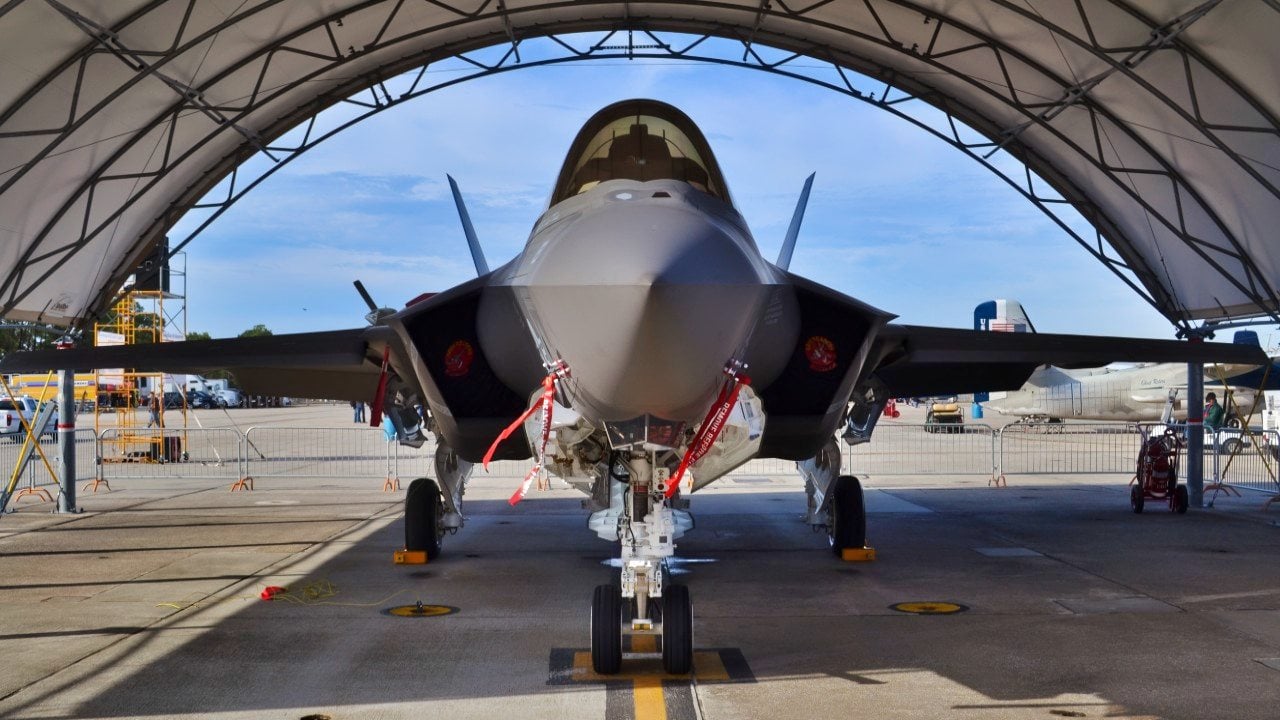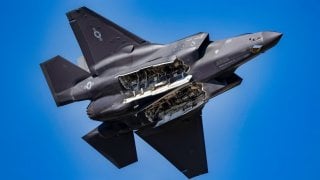Could Turkey Dump the S-400 And Get Back in the F-35 Fighter Program?
A former Turkish government minister recently proposed that Turkey should sell its Russian-made S-400 air-defense system, a move that could potentially restore Turkey's participation in the F-35 Joint Strike Fighter program.
Summary and Key Points: A former Turkish government minister recently proposed that Turkey should sell its Russian-made S-400 air-defense system, a move that could potentially restore Turkey's participation in the F-35 Joint Strike Fighter program.

-Turkey was expelled from the F-35 program due to concerns that the S-400 system, incompatible with NATO, could compromise the stealth capabilities of the aircraft.
-The minister suggested that selling the S-400 to a foreign buyer like India or Pakistan might improve relations with the United States. Despite acquiring the system, Turkey has yet to fully operationalize the S-400 and is considering its future role within NATO.
Turkey: The F-35 Comeback?
Last week, a former Turkish government minister presented a bold idea that would almost certainly win favor with Washington. Ankara should sell its Russian-made air-defense system, which could also allow the NATO member to gain entry back into the F-35 Joint Strike Fighter program.
Turkey (Türkiye) was infamously expelled from the international fifth-generation stealth fighter program after it pushed forward with its acquisition of the Russian-made S-400 Triumf (NATO reporting name: SA-21 Growler). Washington and NATO argued the system was incompatible with the F-35, and that operating both would compromise the stealth capabilities and safety of the aircraft.
Turkish businessman Cavit Caglar, who served as minister of state in the early 1990s, suggested that Ankara should dump the S-400 – and find a foreign buyer, perhaps India or Pakistan – and that such a move could win the good graces of Washington.
"The situation needs to be rectified. If I were in charge, I would sell the S-400s," Caglar told the Turkish language newspaper T24 in an interview last week. "There are customers available. Pakistan or India could buy them."

He acknowledged that Moscow would need to be consulted on such a sale, as Turkey has gotten less than expected from the deal. It was ejected from the F-35 program and has only recently concluded a deal that will see it obtain the F-16 Fighting Falcon. While Ankara will receive the Block-70 models of the F-16, along with upgrade kits for its existing Fighting Falcon fleet, it had really wanted the fifth-generation fighter.
Turkey had been a part of the supply chain for the Lockheed Martin F-35 Lightning II and reportedly paid $1.25 billion to participate in the effort. Producing parts for the fifth-generation aircraft was expected to have generated $9 billion in revenue for Ankara, while six F-35 aircraft produced for Turkey were not delivered.
"I would remove the S-400s from Türkiye if I were in charge," the former minister added. "Our plan was to either acquire additional systems or produce them domestically. We need to find a way out. We have good relations with Russia; the best course of action is to negotiate and explain that, as a NATO member, we cannot use the S-400s against NATO. We need to address this issue promptly."
Not Even Active
What is notable is that despite Turkey's determination to move forward to adopt the Triumf, the system hadn't been made operational as of last December when Turkish Defense Minister Ya ar Güler told reporters that the S-400 system would only be utilized when needed.
"This is a defense system. Don't we use a defensive weapon when someone attacks us? No country launches an attack on another by declaring, 'I will attack you in two hours.' In a wartime scenario, you need to move your aircraft, operate hundreds of trains and declare mobilization, and so on. In other words, for a country to launch an airstrike on another without anyone noticing is very difficult," Güler told journalists, per NordicMonitor.com.

There is little reason to believe the situation has changed, and last week, the EurAsian Times also reported that Ankara had excluded the F-400 from its "Steel Dome," a multi-layered air defense system that is currently being developed.
Moscow had sent two S-400 batteries as well as more than 120 long-range missiles as part of the agreement along with experts to train Turkish soldiers on how to operate the Triumf. A second batch still has yet to be delivered.
Turkey has apparently lost faith in the S-400 and it could be argued it is a matter of face as to why it continues to retain the platform.
"We must reconcile with the United States," Caglar emphasized. "We cannot leave NATO. Through dialogue, we can resolve this issue. Russia will understand our stance. We need to navigate this situation carefully."
India – a Likely Buyer!
Russia also supplied the S-400 to India, which purchased the air defense system units in 2018 for $5.4 billion. Three of the systems have been delivered as of the end of last year, while two more are still awaited. Russia has seen several destroyed just in the past few months – so perhaps allowing a transfer from Turkey to India could solve a number of problems.
It would free Turkey of the system that NATO hates, and allow India to receive the systems now instead of waiting possibly years.
Author Experience and Expertise: Peter Suciu
Peter Suciu is a Michigan-based writer. He has contributed to more than four dozen magazines, newspapers, and websites with over 3,200 published pieces over a twenty-year career in journalism. He regularly writes about military hardware, firearms history, cybersecurity, politics, and international affairs. Peter is also a Contributing Writer for Forbes and Clearance Jobs. You can follow him on Twitter: @PeterSuciu. You can email the author: [email protected].
Image Credit: Creative Commons.


